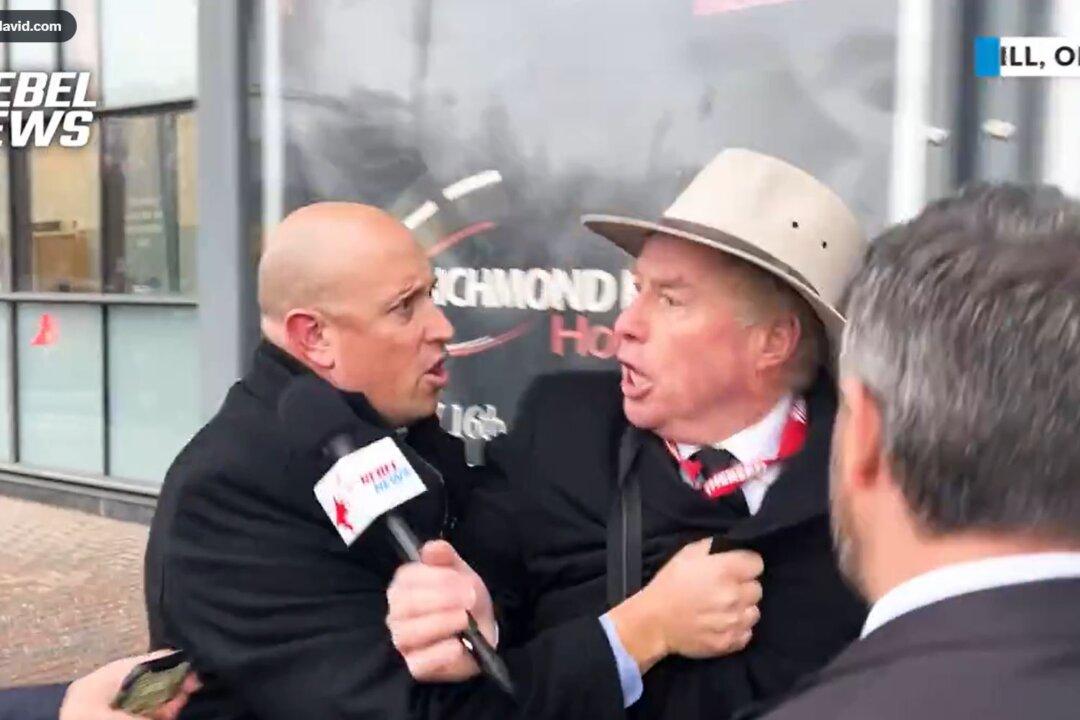Rebel News may face an uphill battle in suing the police for wrongful arrest of journalist David Menzies, experts in the field say, although high publicity and public commentary add more dimensions to the case.
On Jan. 8, Mr. Menzies was walking alongside Deputy Prime Minister Chrystia Freeland on a Toronto-area street, asking her questions as she was on her way to an event, when he walked into a man who stepped in front of him and put his arm out to block Mr. Menzies.





